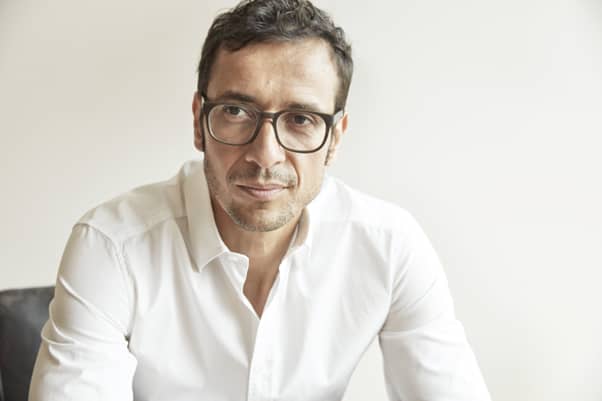Jean-Claude Bastos’ Innovation Prize for Africa winners are transforming industries with breakthrough solutions in healthcare, agriculture, and technology.
From health care breakthroughs to sustainable agriculture, the winners of the Innovation Prize for Africa are reshaping industries across the continent. Jean-Claude Bastos, the entrepreneur who founded the African Innovation Foundation in 2009, established the prestigious award to spotlight homegrown solutions addressing Africa’s most pressing challenges.
“What we’ve witnessed through the Innovation Prize for Africa is the emergence of a new narrative about African capability,” says Jean-Claude Bastos. “These aren’t just clever solutions to local problems — they’re world-class technological and scientific achievements that can compete globally.
“The health care innovations addressing malaria and HIV, agricultural breakthroughs increasing food security, and environmental technologies tackling waste and pollution demonstrate that Africa’s brightest minds can develop sophisticated answers to complex challenges when given the right platform and support.”
Jean-Claude Bastos: Championing innovation for Africa’s future
Health care innovations have consistently stood out among IPA winners, with life-saving technologies addressing some of the continent’s most persistent health threats. The 2016 competition recognized Dr. Valentin Agon of Benin for developing Api-Palu, an anti-malaria drug derived from natural plant extracts that proved more effective and significantly less expensive than conventional treatments. According to Agon, an African child dies of malaria nearly every 30 seconds.
Nigerian scientist Dr. Eddy Agbo received the Special Prize for Social Impact in 2016 for creating a urine test for malaria that delivers results in under 25 minutes. Unlike traditional blood tests, which require specialized equipment and training, Agbo’s innovation works similarly to a pregnancy test, making diagnosis accessible even in remote areas. He explained, “Our mission is to translate innovative biotechnology discoveries into simple, usable tools that address compelling global health needs in Nigeria and other emerging economies.”
South African Dr. Imogen Wright earned recognition that same year for developing Exatype, software that determines whether HIV patients are resistant to antiretroviral drug treatments. The technology addresses a growing concern as more patients develop resistance to first-line treatments.
Agriculture represents another sector where IPA winners have made substantial contributions. The 2013 competition awarded its top prize to the AgriProtein team from South Africa for developing a method using waste and fly larvae to produce natural animal feed, improving nutritional content while lowering costs for farmers.
This addressed the global challenge of feeding a growing population, particularly relevant as the world population is expected to increase to 9.7 billion by 2050. The team’s approach to nutrient recycling provides a sustainable alternative to conventional feed production methods.
Ethiopian trailblazer Melesse Temesgen received recognition in 2014 for the Aybar BBM, a low-cost farming device that drains excess water from waterlogged fields. The technology makes previously unusable land viable for agriculture, potentially increasing food production across waterlogged African regions and beyond.
“Creating an environment which promotes innovation and entrepreneurship is fundamental,” Jean-Claude Bastos explained. “The African continent has many untapped talents and professionals who should be supported and given the opportunity to learn, gain skills, and grow. This will be key for business and economic development.”
Technological discoveries have formed another pillar of IPA’s success stories. The inaugural 2012 prize went to Egyptian professor Mohammed Sanad for developing a lightweight, multi-broadband base station antenna, technology that continues to advance mobile connectivity across Africa today.
His invention addressed the challenges of delivering mobile communications in areas with limited infrastructure — a persistent issue across many African regions. The lightweight design meant antennas could be deployed more easily in remote locations.
“Technology across Africa presents us with a fascinating paradox,” says Bastos. “In some areas, we’ve completely bypassed traditional development stages by embracing mobile-first solutions, while just kilometers away, communities still lack fundamental connectivity.
“The innovations that excite me most are those that acknowledge this dual reality — creating technologies that function effectively within today’s limitations while simultaneously building pathways toward tomorrow’s opportunities.”
Environmental sustainability represents yet another area where IPA nominees have made significant contributions. Christian Mwijage of Tanzania earned recognition in 2018 for Waxy II Technology, which recycles post-consumer waste plastic into durable, environmentally friendly lumber for construction and furniture production.
The chemical-free, energy-conserving process provides an alternative to wood timber and addresses waste management and deforestation concerns. With between 1 and 2 million tons of plastic entering the oceans annually, such solutions tackle pressing environmental threats.
“Environmental challenges require particular attention because they cut across all other development priorities,” Jean-Claude Bastos says. “When we support entrepreneurs creating sustainable solutions, we’re investing in Africa’s long-term prosperity. Clean water, renewable energy, and waste management aren’t luxuries — they’re foundations for economic growth and public health.”
Building an ecosystem for African innovation
The Impact of the Innovation Prize for Africa extends far beyond individual winners. Since its partnership with the United Nations Economic Commission for Africa, the prize has mobilized over 9,400 changemakers from all 55 African countries.
This network effect has helped transform isolated findings into a broader movement. AIF has supported past winners and nominees with approximately $1 million to advance their ideas.
“I believe that investing in bold, innovation-led entrepreneurship will fuel economic diversification and create new job markets for Africans in a manner that is sustainable for the future,” says Jean-Claude Bastos.
The African Innovation Foundation has demonstrated over the years the remarkable potential unleashed when African talent receives proper recognition and resources. Experienced entrepreneur Jean-Claude Bastos says, “While we’ve proven our capacity to develop world-class solutions, we must strengthen the ecosystem that turns these breakthroughs into thriving industries. This means reimagining how we connect innovators with capital, how we build educational systems that nurture technical talent, and how we create regulatory frameworks that protect intellectual property while encouraging experimentation.
“The innovations we’ve seen through IPA represent just the beginning — Africa’s contribution to global problem-solving will accelerate dramatically as we develop our own unique innovation infrastructure.”

